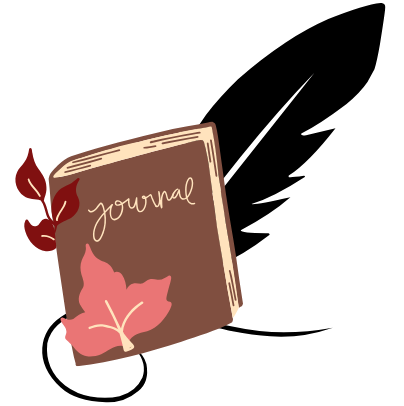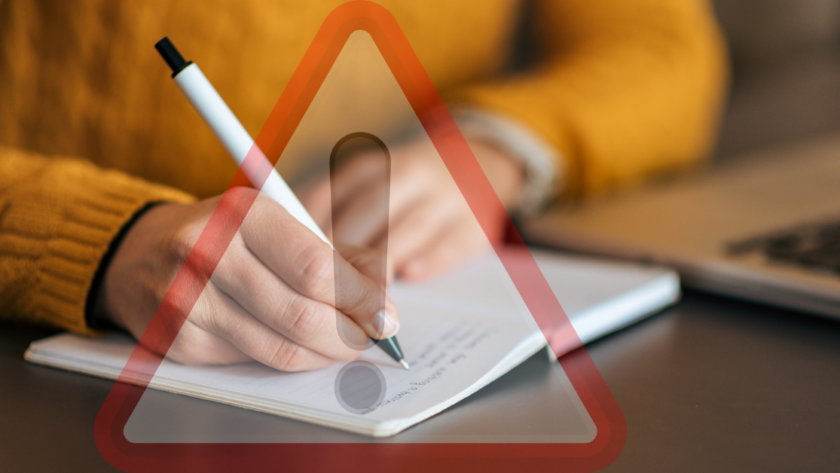As someone who’s studied the psychological impacts of self-help techniques for years, I’ve come to a startling realization: journaling isn’t always the cure-all it’s made out to be. In fact, this seemingly harmless habit can open up a Pandora’s box of unexpected consequences.
From privacy breaches to emotional vulnerability, from legal liabilities to digital security risks, the dangers of journaling are rarely discussed but potentially significant. Let’s explore why that blank page might be more threatening than you think.
The Psychological Pitfalls of Journaling
The Rumination Trap
One of the most insidious dangers of journaling is it’s potential to fuel excessive rumination. While reflection can be useful, there’s a fine line between productive introspection and harmful overthinking.
Research by Sloan et al. in 2008 found that focusing intensely on negative experiences without proper cognitive restructuring can actually exacerbate symptoms of post-traumatic stress disorder (PTSD).
For those prone to anxiety or depression, journaling can become a vehicle for obsessive thought patterns. Instead of providing clarity, it may lead to a cycle of negative self-talk and cognitive distortions.
The very act of writing down our worries can give them undue weight and permanence, making them seem more real and insurmountable.
The Illusion of Problem-Solving
Another psychological pitfall of journaling is the false sense of progress it can create. Writing about our problems can give us the illusion that we’re actively working on them, when in reality, we may be avoiding taking concrete actions to address these issues in our lives.
This phenomenon, which I call “paper progress,” can be particularly dangerous because it provides a sense of accomplishment without actual change. It’s like treading water – you’re expending energy, but you’re not actually getting anywhere.
Emotional Dependence and Avoidance
For some, journaling can become an emotional crutch, a way to avoid dealing with difficult emotions or situations in real life. Instead of having that tough conversation with a friend or family member, you might find yourself pouring your feelings onto the page, never actually addressing the issue at hand.
This emotional dependence on journaling can hinder the development of crucial interpersonal skills and healthy coping mechanisms. It’s essential to remember that while journaling can be a useful tool, it shouldn’t replace real-world problem-solving and communication.
The Emotional Toll of Constant Introspection
Emotional Burnout and Fatigue
Constant introspection through journaling isn’t always emotionally cathartic. In fact, it can lead to emotional burnout.
The act of repeatedly delving into our deepest thoughts and feelings, especially when focusing on negative experiences, can be emotionally exhausting.
This is particularly true for those who use journaling as a means to process traumatic or highly stressful events without professional guidance. The risk of re-traumatization is real, and without proper tools to manage these intense emotions, journaling can sometimes do more harm than good.
The Self-Criticism Spiral
Journaling can sometimes become a breeding ground for self-criticism and negative self-talk. Without proper balance and perspective, our journals can turn into a record of our perceived failures and shortcomings, eroding our self-esteem over time.
It’s crucial to be aware of the tone and content of our journaling. If you find that your entries are consistently self-deprecating or focused on your flaws, it might be time to reassess your approach or seek professional guidance.
Legal and Privacy Concerns: When Your Words Can Be Used Against You
The Legal Liability of Personal Journals
One of the most overlooked dangers of journaling is it’s potential legal implications. Many people are unaware that personal journals can be subpoenaed and used as evidence in legal proceedings.
This little-known fact has led to serious consequences for individuals who believed their private thoughts were protected. Here’s a scenario where your most intimate thoughts and confessions become public record in a courtroom. It’s a chilling prospect that underscores the importance of being mindful about what we commit to paper or digital format.
Digital Vulnerabilities in the Age of Online Journaling
With the rise of digital journaling platforms, the risks extend beyond the physical realm. Cybersecurity threats pose a significant danger to our personal information.
Hackers can potentially access and exploit the sensitive data shared in online journals, leading to privacy breaches or even identity theft.
The convenience of digital journaling comes at a price – the constant threat of your deepest secrets being exposed to the world with just a few keystrokes. It’s a sobering reminder that in the digital age, our words can have far-reaching consequences beyond our control.
Implementing Safe Journaling Practices: A Step-by-Step Guide
Assess Your Emotional State
Before you start journaling, take a moment to check in with yourself. Are you in a stable emotional state?
If you’re feeling particularly vulnerable or distressed, it might be better to seek support from a friend or professional instead of turning to your journal.
Set Clear Boundaries
Decide what topics are off-limits for your journal. This could include sensitive information about others, explicit details about illegal activities, or anything you wouldn’t want to be made public.
Practice Mindful Writing
Focus on balanced reflection instead of rumination. For every negative experience you write about, try to include a positive one as well.
This helps maintain perspective and prevents your journal from becoming a catalog of complaints.
Implement Security Measures
If you’re using a physical journal, keep it in a secure location. For digital journaling, use strong passwords, enable two-factor authentication, and consider using encrypted platforms designed for secure note-taking.
Regular Review and Reflection
Periodically review your journal entries. Look for patterns in your thinking and emotional responses.
If you notice a trend towards negativity or obsessive thoughts, it might be time to adjust your approach or seek professional guidance.
Combine Journaling with Action
For every problem you write about, try to include at least one actionable step you can take to address it. This helps prevent the “paper progress” phenomenon and confirms your journaling leads to real-world changes.
Practice Selective Sharing
If you feel the need to share your journal entries with others, be highly selective. Choose trusted individuals who can provide constructive feedback and support.
Common Pitfalls and How to Avoid Them
The Comparison Trap
One common pitfall of journaling is the tendency to compare our lives unfavorably to others or to an idealized version of ourselves. This can lead to feelings of inadequacy and disappointment.
To avoid this, focus on your personal growth journey instead of measuring yourself against external standards. Celebrate small victories and acknowledge progress, no matter how incremental.
The Time Sink
Journaling can sometimes become a time-consuming activity that takes away from other important aspects of life. It’s easy to get lost in introspection and neglect real-world responsibilities and relationships.
Set clear time limits for your journaling sessions. Use a timer if necessary, and stick to a schedule that allows for reflection without dominating your day.
The Emotional Echo Chamber
When we journal without external input, we risk creating an echo chamber of our own thoughts and emotions. This can reinforce negative patterns and prevent us from gaining new perspectives.
To counter this, consider incorporating other viewpoints into your journaling practice. Read inspiring quotes, reflect on advice from trusted friends, or explore different philosophical ideas to broaden your mental landscape.
Adapting Journaling Techniques for Different Scenarios
Journaling for Grief and Loss
When dealing with grief, journaling can be a double-edged sword. While it can provide an outlet for intense emotions, it can also lead to prolonged rumination on painful memories.
Adapt your journaling practice by focusing on gratitude and positive memories associated with the person or thing you’ve lost. Set time limits for grief-focused journaling and balance it with entries about your current life and future hopes.
Journaling for Anxiety Management
For those with anxiety, journaling can sometimes exacerbate worries by giving them a permanent form on the page. Instead of free-form journaling, try structured anxiety management techniques like worry logs or thought challenging exercises.
Use your journal to track anxiety triggers and successful coping strategies. This turns your journal into a tool for problem-solving instead of a repository for fears.
Journaling for Personal Growth
When using journaling for personal development, it’s easy to fall into the trap of setting unrealistic expectations or being overly self-critical.
Adapt your approach by setting SMART goals (Specific, Measurable, Achievable, Relevant, Time-bound) and using your journal to track progress and lessons learned. Celebrate small wins and use setbacks as learning opportunities instead of reasons for self-criticism.
Building on Basics: Advanced Journaling Techniques
As you become more aware of the potential pitfalls of journaling, you can start to apply more sophisticated techniques that maximize benefits while minimizing risks.
Dialectical Journaling
This advanced technique involves exploring opposing viewpoints or emotions within the same entry. By acknowledging the complexity of your thoughts and feelings, you can avoid black-and-white thinking and develop a more nuanced understanding of yourself and your experiences.
For example, you might write about a challenging situation at work, exploring both your frustration with a difficult colleague and your appreciation for the growth opportunity the situation presents. This approach helps you develop a more balanced perspective and can lead to more effective problem-solving.
Meta-Journaling
Take your practice to the next level by journaling about your journaling. Reflect on the impact of your writing habits, the patterns you notice, and how your journaling practice is affecting your daily life.
This self-awareness can help you continually refine your approach and confirm that journaling remains a positive force in your life. You might ask yourself questions like:
- How has my journaling practice evolved over time?
- What themes or patterns do I notice in my entries?
- Are there topics I tend to avoid or overemphasize?
- How does my mood before journaling affect what I write?
Collaborative Journaling
Consider engaging in a shared journaling practice with a trusted friend or therapist. This can provide external perspective and accountability, helping to counteract the risks of isolation and self-deception that can come with solo journaling.
You might set up a system where you exchange journal entries on a specific topic or challenge, offering each other supportive feedback and choice viewpoints. This approach can be particularly helpful when working through complex emotional issues or trying to break negative thought patterns.
Exercises to Enhance Your Journaling Practice
The Gratitude Challenge
For one week, focus exclusively on writing about things you’re grateful for. This can help shift your perspective and counteract negative thought patterns.
Each day, try to list at least three things you’re thankful for, no matter how small.
This practice can help rewire your brain to notice and appreciate positive aspects of your life more readily.
The Alternative Ending Exercise
Write about a challenging situation, then create three choice endings or outcomes. This can help develop problem-solving skills and reduce fixation on negative outcomes.
By imagining different possibilities, you open your mind to new solutions and perspectives you might not have considered otherwise.
The Letter to Your Future Self
Write a letter to yourself to be read in one year. Include your current thoughts, feelings, and goals.
This can provide perspective on your growth over time.
When you read the letter a year later, you’ll likely be surprised by how much has changed and how you’ve evolved. This exercise can be a powerful reminder of your resilience and capacity for growth.
The Opposite Perspective Challenge
Choose a situation you’ve been struggling with and write about it from the opposite point of view. This can help develop empathy and broaden your understanding of complex issues.
For example, if you’re having a conflict with a coworker, try writing from their perspective.
This exercise can help you see situations more objectively and may even lead to breakthroughs in resolving conflicts.
The Daily Highlight Reel
Instead of a detailed account of your day, write only about the most significant moment. This can help focus your journaling on meaningful experiences instead of mundane details.
By reflecting on what stood out most, you train your mind to prioritize and appreciate the most impactful aspects of your life.
The Role of Technology in Modern Journaling
Digital vs. Traditional Journaling
The rise of digital journaling apps and platforms has revolutionized the way many people approach this practice. While digital journaling offers convenience and features like searchability and cloud backup, it also comes with unique risks and considerations.
Digital journals are more vulnerable to hacking and unauthorized access. They can also be more easily shared or discovered by others, intentionally or unintentionally.
On the other hand, physical journals can be lost, damaged, or discovered by someone in your home or workspace.
Consider your personal needs and risk tolerance when choosing between digital and traditional journaling methods. Some people find that a hybrid approach works best, using digital tools for certain types of entries and a physical journal for more sensitive or personal reflections.
Leveraging AI and Analytics in Journaling
Some advanced digital journaling platforms now offer AI-powered insights and mood tracking. These tools can analyze your entries for patterns in your emotions, topics, and language use over time.
While this can provide valuable insights, it’s important to approach these features critically.
AI analysis should complement, not replace, your own self-reflection. Be aware that these tools may have biases or limitations in understanding the full context of your entries.
Use them as a starting point for deeper personal exploration as opposed to definitive conclusions about your mental state or progress.
The Ethics of Journaling: Respecting Others’ Privacy
Writing About Others
One often overlooked aspect of journaling is the ethical consideration of writing about other people. While your journal is your personal space, it’s important to be mindful of how you represent others in your entries.
Consider the potential impact if your journal were to be read by someone else. How would the people you’ve written about feel?
While it’s natural and often helpful to process relationships and interactions through journaling, try to maintain a balance between honest expression and respect for others’ privacy and dignity.
Posthumous Privacy Concerns
Another ethical consideration is what happens to your journals after you’re gone. Many famous historical figures have had their private journals published posthumously, sometimes revealing intimate details they never intended to share.
If you’re concerned about this, consider including instructions for your journals in your will or discussing your wishes with trusted family members. Some people choose to destroy certain journals or entries, while others embrace the idea of leaving a written legacy.
The Cultural and Historical Context of Journaling
Journaling Across Cultures
The practice of keeping a personal journal has varied significantly across different cultures and historical periods. In some societies, journaling has been seen as a valuable tool for self-improvement and spiritual growth.
In others, it has been viewed with suspicion, particularly under authoritarian regimes where personal writings could be used as evidence against people.
Understanding these cultural contexts can help us appreciate the privilege and responsibility that comes with the freedom to journal openly. It can also inspire us to explore different cultural approaches to self-reflection and personal growth.
Famous Journals in History
Studying the journals of historical figures can provide insight into both the benefits and risks of this practice. For example, the diaries of Anne Frank offer a poignant window into one of history’s darkest periods, while also demonstrating the power of journaling as a coping mechanism in extreme circumstances.
On the other hand, the journals of artists and writers like Virginia Woolf showcase how this practice can fuel creativity and self-expression, and potentially exacerbate mental health struggles if not balanced with other forms of support.
Journaling in Therapeutic Settings
The Role of Journaling in Psychotherapy
Many therapists incorporate journaling into their treatment plans, recognizing it’s potential as a tool for self-discovery and emotional processing. However, it’s crucial to understand that therapeutic journaling is typically more structured and guided than personal journaling.
In a therapeutic context, journaling exercises are often designed to address specific issues or achieve particular therapeutic goals. They’re used in conjunction with professional support, which helps mitigate some of the risks associated with unsupervised journaling.
When to Seek Professional Guidance
While journaling can be a valuable self-help tool, there are times when professional support is necessary. If you find that journaling is consistently bringing up intense emotions that you struggle to manage, or if you’re using it to avoid dealing with real-life problems, it may be time to consult a mental health professional.
A therapist can help you develop healthier journaling practices and provide extra tools for managing your emotions and life challenges. They can also offer a safe space to explore the insights you’ve gained through your journaling practice.
The Future of Journaling: Trends and Predictions
Integration with Wearable Technology
As wearable technology becomes more sophisticated, we may see closer integration between these devices and journaling practices. Here’s a journaling app that can incorporate data from your fitness tracker or smartwatch, providing context about your physical state (heart rate, sleep quality, activity levels) alongside your written entries.
This could offer a more holistic view of your well-being, but it also raises new privacy concerns and the risk of becoming overly reliant on technology for self-understanding.
Virtual Reality Journaling
Virtual and augmented reality technologies could change the journaling experience. Instead of writing or typing, you might be able to create immersive, three-dimensional journal entries that capture not just your thoughts, and visual and auditory elements of your experiences.
While this could provide a richer, more engaging way to record and revisit memories, it also intensifies the need for robust security measures to protect these highly personal and detailed records.
Key Takeaways
- Journaling can lead to excessive rumination and reinforce negative thought patterns if not approached mindfully.
- There are potential legal and privacy risks associated with keeping a journal, especially in the digital age.
- Safe journaling practices include setting boundaries, implementing security measures, and balancing reflection with action.
- Advanced techniques like dialectical journaling and meta-journaling can enhance the benefits of the practice while minimizing risks.
- Regular review and adaptation of your journaling approach is crucial to confirm it remains a positive tool for personal growth.
People Also Asked
Is journaling good for mental health?
Journaling can be useful for mental health when practiced mindfully. It can help process emotions, reduce stress, and increase self-awareness.
However, it’s important to approach journaling in a balanced way to avoid negative thought patterns.
How often should you journal?
The frequency of journaling depends on personal preference and goals. Some people benefit from daily journaling, while others find weekly or as-needed journaling more helpful.
The key is consistency and finding a rhythm that works for you.
Can journaling replace therapy?
While journaling can be a valuable tool for self-reflection and emotional processing, it cannot replace professional therapy. Therapists provide expert guidance, goal perspectives, and specialized techniques that journaling alone cannot offer.
What are the risks of online journaling?
Online journaling carries risks such as potential data breaches, hacking, and unintended sharing. There’s also the risk of platforms shutting down or changing their privacy policies, potentially compromising your personal information.
How can I keep my journal private?
To keep a physical journal private, store it in a secure location or use a lock. For digital journals, use strong passwords, enable two-factor authentication, and consider using encrypted journaling apps.
Be cautious about what sensitive information you include.
Can journaling help with anxiety?
Journaling can be an effective tool for managing anxiety. It can help identify triggers, track symptoms, and develop coping strategies.
However, it’s important to use structured techniques and avoid ruminating on anxious thoughts.
What should I write in my journal?
Journal content can vary widely based on personal goals. Common topics include daily experiences, emotions, goals, gratitude, problem-solving, and self-reflection.
The key is to write what feels meaningful and helpful to you.
Is it better to journal in the morning or at night?
The best time to journal depends on person preferences and schedules. Morning journaling can set a positive tone for the day, while evening journaling allows for reflection on the day’s events.
Experiment to find what works best for you.
How long should a journal entry be?
There’s no set length for journal entries. They can range from a few sentences to several pages.
The important thing is to write enough to express your thoughts and feelings adequately, without feeling pressured to write a certain amount.
Can journaling help with depression?
Journaling can be a helpful tool in managing depression when used in conjunction with professional treatment. It can help with identifying negative thought patterns, tracking mood changes, and recognizing progress.
However, it’s crucial to avoid using journaling as a way to dwell on negative thoughts.




